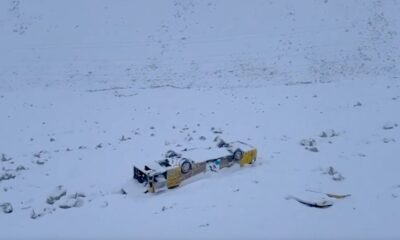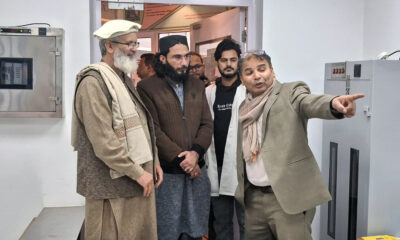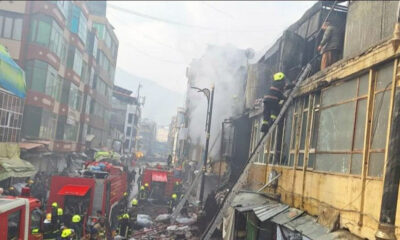Latest News
BBC probe finds SAS executed detainees and unarmed people in Afghanistan
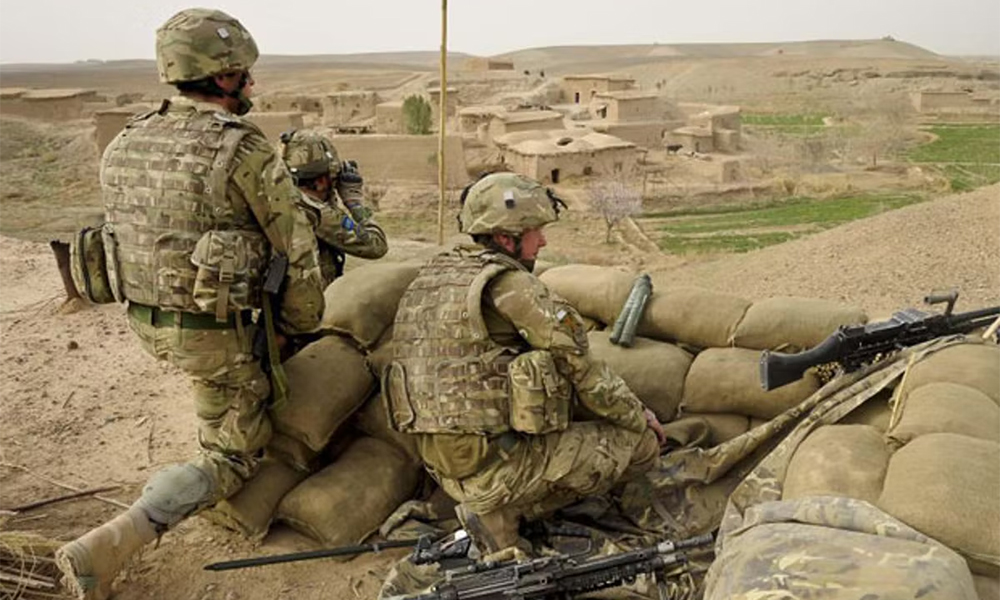
A BBC Panorama investigation has uncovered evidence that the British SAS, a special forces unit, executed detainees and murdered unarmed people during operations in Afghanistan.
The investigation found new evidence of scores of secret killings by the SAS, and efforts by some of the most senior figures in UK Special Forces to conceal evidence of war crimes.
Panorama has identified 54 people shot dead in suspicious circumstances by one SAS unit during one six month tour of Afghanistan. The youngest was described as just 15 years old when he was killed.
BBC also discovered that senior officers, including General Sir Mark Carleton-Smith, failed to report the alleged murders and did not disclose the evidence held by UK Special Forces to the military police.
Special Forces deployed to Afghanistan had been tasked with targeting Islamic Emirate of Afghanistan (IEA) leaders and the bomb-making networks causing frequent causalities using IEDs.
From 2009 onwards, the SAS conducting hundreds of raids on suspected IEA targets. The aim was to arrest key leaders and those involved in bomb making networks. Many of these raids were carried out at night, and became known among Special Forces as ‘Kill/Capture’ missions.
Panorama traveled to Afghanistan to interview key eyewitnesses and examine the evidence left at the sites of some of the shootings.
Sources from within UK Special Forces told Panorama senior officers at Special Forces headquarters in London were worried about the number of people being killed on the raids at the time. Internal documents seen by Panorama show that the SAS accounts of killings were also causing alarm.
“Too many people were being killed on night raids and the explanations didn’t make sense. Once somebody is detained, they shouldn’t end up dead. For it to happen over and over again was causing alarm at HQ. It was clear at the time that something was wrong.”
The evidence obtained by Panorama shows that the then director of Special Forces was repeatedly warned in 2011 that executions were taking place. But the Royal Military Police was not informed.
Special Forces leaders collected statements from their own men in a folder they had created for ‘anecdotal evidence of extra-judicial killings’. It was then locked away in a secret restricted-access classified file.
General Sir Mark Carleton-Smith took over as Director Special Forces – the highest ranking UKSF officer in the country – in February 2012.
Panorama has uncovered evidence that he was briefed about the alleged executions by the SAS squadron. Despite this, Carleton-Smith allowed the squadron to redeploy to Afghanistan at the end of 2012 – a tour that was to end in a murder inquiry.
An investigation was launched after a member of the squadron killed a man in suspicious circumstances during a night raid in Helmand, in May 2013. The same man had been on some of the deadliest raids on the SAS unit’s previous tour in 2010/11.
BBC Panorama has discovered Carleton-Smith failed to tell the military police that the same SAS unit had earlier been suspected of carrying out dozens of executions and unlawful killings.
Under the Armed Forces Act, it is a criminal offence for a commanding officer to fail to inform the military police if they become aware of potential war crimes.
Carleton-Smith, who stepped down as the UK’s Chief of the General Staff last month, declined to comment for the BBC.
The MoD said it could not comment on any allegations for legal reasons, but that should not be taken as acceptance of their factual accuracy.
The Royal Military Police (RMP) did not find out about the evidence held by Special Forces headquarters until four years later, in 2015. They were conducting a wider investigation, called Operation Northmoor, into the way British troops behaved in Afghanistan.
In 2017, the government announced Northmoor was to be shut down without anyone being charged. The MoD stated at the time: “They [the RMP] have found no evidence of criminal behavior by the Armed Forces in Afghanistan.”
The Ministry of Defense said extensive and independent investigations into the conduct of UK forces in Afghanistan found insufficient evidence to bring charges:
“The UK Armed Forces served with courage and professionalism in Afghanistan and we will always hold them to the highest standards. No new evidence has been presented, but the Service Police will consider any allegations should new evidence come to light.”
Latest News
Afghanistan signs 30-year deal for marble mining in Daikundi

The Ministry of Mines and Petroleum of Afghanistan has signed a 30-year agreement with a private company to extract marble in Daikundi province.
Under the contract, the company will invest AFN 283 million in exploring and mining marble at the “Mesh-Uliya” site, spanning 16.74 square kilometers in central Daikundi.
Hedayatullah Badri, Minister of Mines and Petroleum, stated that the marble will be processed domestically before being exported abroad. He added that the Mesh-Uliya project is expected to create around 200 jobs, and the company is committed to supporting local communities through social initiatives.
Economic experts highlight that such investments, especially those focusing on domestic processing, are crucial for job creation, boosting exports, and strengthening the national economy. Analysts further note that the project will improve local infrastructure, expand social services, and enhance the economic and social well-being of Daikundi residents.
Since the return of the Islamic Emirate to power, efforts to develop Afghanistan’s mining sector have intensified, with multiple contracts signed in areas including cement, copper, iron, and lapis lazuli, involving both domestic and international companies.
Latest News
Passenger bus veers off Salang Highway, leaving 5 dead, dozens injured
Latest News
Major fire in Mandawi Kabul market contained, extensive losses prevented
Local shopkeepers said the fire broke out around 4 a.m.
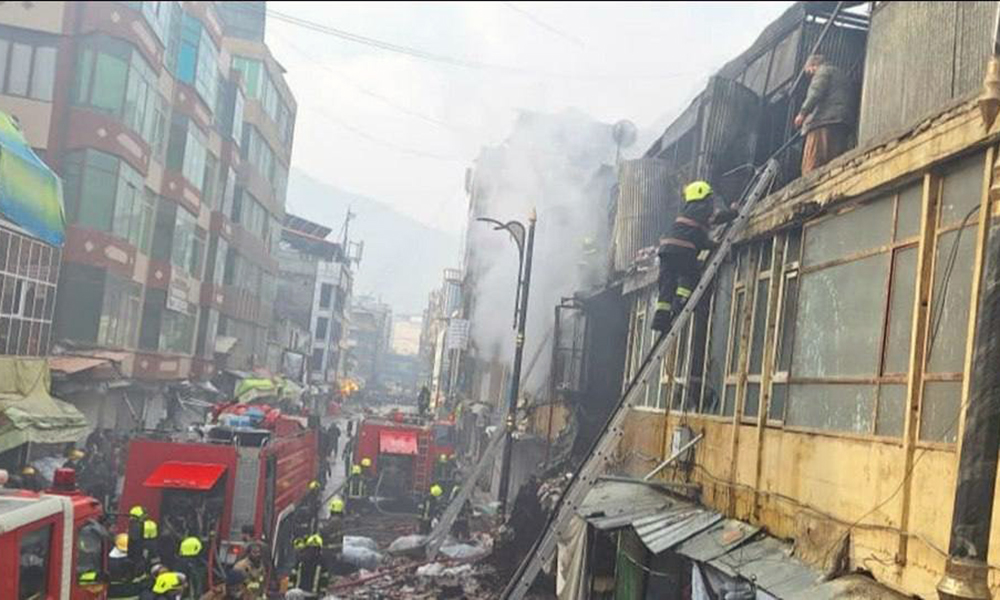
The Ministry of Interior reported that personnel from the General Directorate of Firefighting and Emergency Response successfully prevented the further spread of a fire at Mandawi market on Kabul early Sunday morning.
Abdul Mateen Qani, spokesperson for the ministry, said that the fire destroyed 10 storage facilities and 8 shops. He added that initial losses are estimated at around $700,000, but timely action by firefighting personnel saved property worth approximately $2.2 million.
Qani explained that the fire was caused by an electrical short circuit. He praised the rapid and effective containment operations, which prevented more extensive damage.
Local shopkeepers said the fire broke out around 4 a.m.
-

 International Sports5 days ago
International Sports5 days agoIPL 2026: Teams take shape after auction as franchises balance star power and depth
-

 International Sports4 days ago
International Sports4 days agoILT20: Abu Dhabi Knight Riders end Desert Vipers’ unbeaten run in dramatic one-run win
-

 Latest News2 days ago
Latest News2 days agoAfghan border forces prevent illegal entry of hundreds into Iran
-
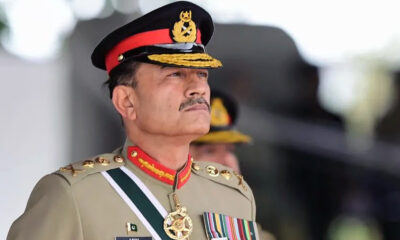
 Regional5 days ago
Regional5 days agoPakistan’s military chief Asim Munir in spotlight over Trump’s Gaza plan
-

 Latest News2 days ago
Latest News2 days agoPakistan summons Afghan diplomat over deadly attack in North Waziristan
-

 Business4 days ago
Business4 days agoMahirood Customs leads Iran’s exports to Afghanistan
-

 World5 days ago
World5 days agoTrump adds seven countries, including Syria, to full travel ban list
-
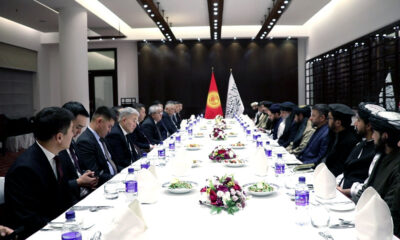
 Latest News4 days ago
Latest News4 days agoAfghanistan, Kyrgyzstan discuss expanding trade and economic cooperation








